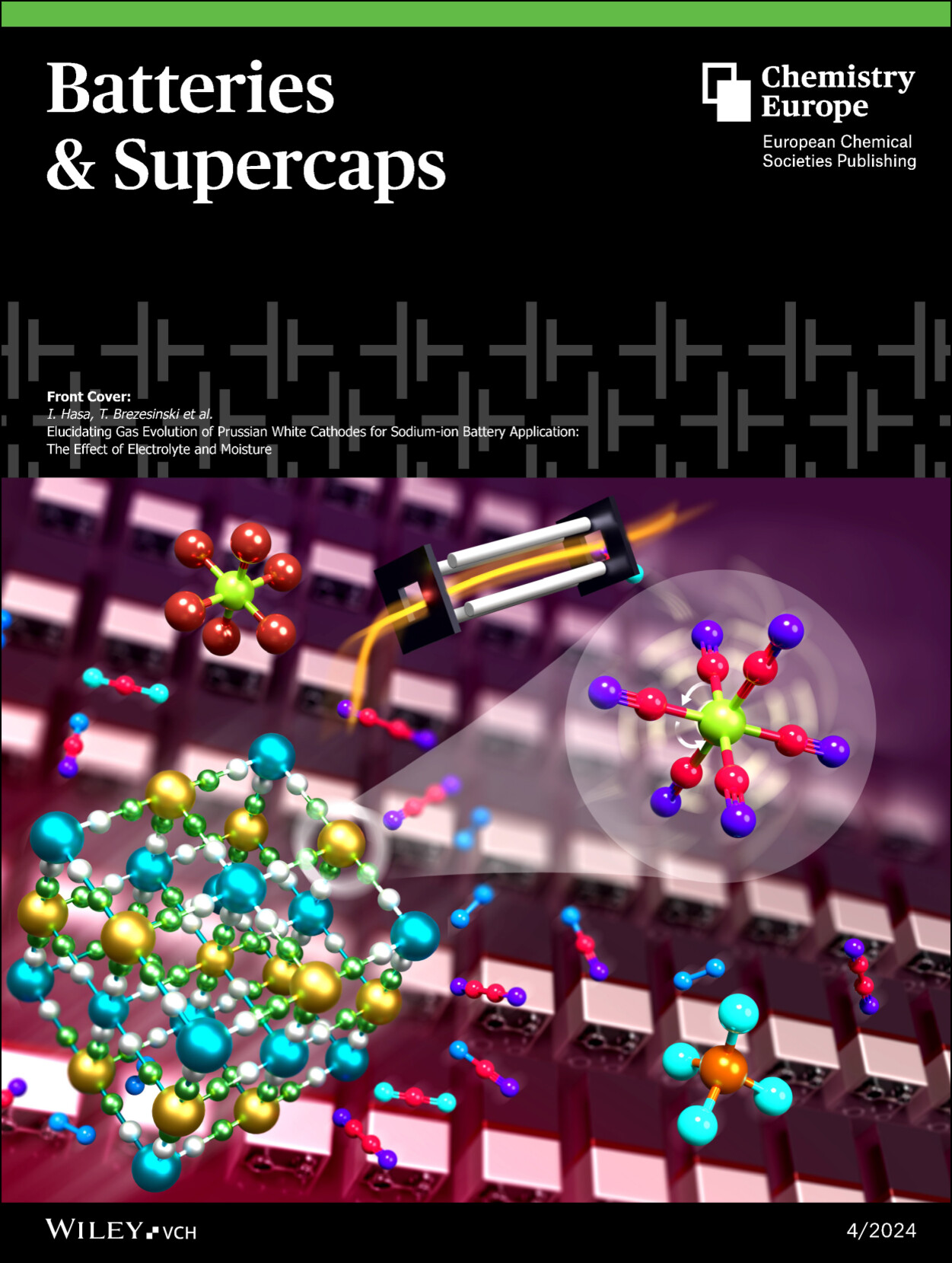Highly Effective Electrolytes toward High‐Performance Aluminum/Seawater Batteries
IF 5.1
4区 材料科学
Q2 ELECTROCHEMISTRY
引用次数: 0
Abstract
The poor performance of metal/water batteries caused by self‐corrosion of anodes and low catalytic activity of cathodes has been a long‐standing challenge, greatly limiting their practical applications, in particular the underwater unmanned vehicle (UUV) application. We have fabricated an Al/seawater battery using simulated seawater with an appropriate pH and added with polyacrylic acid (PAA) as the electrolyte. This electrolyte simultaneously greatly retards self‐corrosion of the Al anode by in situ forming a PAA‐Al3+ complex film on it and increases the electrocatalytic activity toward the hydrogen evolution reaction by improving the electronic structure of Pt. When utilizing the multielement‐doped Al sheet as the anode and nickel foam supported loading‐amount‐optimized Pt/C catalyst as the cathode and adopting the developed new electrolyte, the obtained Al/H2O battery exhibits an energy density of 2271 Wh kg‐1, which is the highest among those of all the reported batteries, and a power density of 20.87 mW cm‐2, which outperforms all the reported metal/H2O batteries. This work not only develops a new type of high‐performance Al/H2O batteries for practical applications such as UUVs, but provides scientific insight into the design of superior electrolytes, which could be further extended for improving the performances of various metal batteries.实现高性能铝/海水电池的高效电解质
金属/水电池因阳极自腐蚀和阴极催化活性低而性能不佳,这一直是一个长期存在的难题,极大地限制了其实际应用,尤其是水下无人潜航器(UUV)的应用。我们利用具有适当 pH 值的模拟海水并添加聚丙烯酸(PAA)作为电解质,制造出了铝/海水电池。这种电解质通过在铝阳极上原位形成 PAA-Al3+ 复合物膜,大大减缓了铝阳极的自腐蚀,同时通过改善铂的电子结构,提高了对氢进化反应的电催化活性。利用多元素掺杂的铝片作为阳极,泡沫镍支撑负载量优化的 Pt/C 催化剂作为阴极,并采用所开发的新型电解质,所获得的 Al/H2O 电池的能量密度为 2271 Wh kg-1,是所有已报道电池中最高的,功率密度为 20.87 mW cm-2,优于所有已报道的金属/H2O 电池。这项工作不仅为 UUV 等实际应用开发了一种新型高性能 Al/H2O 电池,而且为设计优异的电解质提供了科学依据,可进一步用于提高各种金属电池的性能。
本文章由计算机程序翻译,如有差异,请以英文原文为准。
求助全文
约1分钟内获得全文
求助全文
来源期刊

Batteries & Supercaps
Multiple-
CiteScore
8.60
自引率
5.30%
发文量
223
期刊介绍:
Electrochemical energy storage devices play a transformative role in our societies. They have allowed the emergence of portable electronics devices, have triggered the resurgence of electric transportation and constitute key components in smart power grids. Batteries & Supercaps publishes international high-impact experimental and theoretical research on the fundamentals and applications of electrochemical energy storage. We support the scientific community to advance energy efficiency and sustainability.
 求助内容:
求助内容: 应助结果提醒方式:
应助结果提醒方式:


